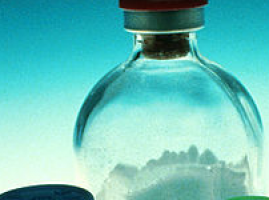
A new study by researchers at the Bellvitge Biomedical Research Institute (IDIBELL) has found a cause of multiple resistance in cancer chemotherapy.
The work, published today in the Proceedings of the National Academy of Sciences (PNAS) journal, the organ of expression of the United States Academy of Sciences, has been carried out by the research group of Dr. Manel Esteller, Director of Epigenetics and Cancer Biology Program (PEBC) of IDIBELL, ICREA Researcher and Professor of Genetics at the University of Barcelona.
The introduction of cancer chemotherapy was a revolution for the treatment of this disease in those cases in which the cure is no longer possible only with the mere extirpation of the tumour.
Chemotherapy has been shown to be effective in a wide range of patients, but one of its main problems is the emergence of resistance against the anti-tumour drug used.
However, it has been known for decades that there are tumours that display cross-resistance against different drugs since its inception, when they have not yet been treated.
"We have found that 10% of colon and stomach tumours present the loss of a molecule called TP53TG1, whose function in healthy cells is to prevent activation of YBX1 protein. Without surveillance of TP53TG1 in these gastrointestinal tumours, YBX1 goes to the nucleus of the cell and is responsible for the activation of hundreds of oncogenes that will prevent the death of malignant cells that antitumour drugs induce", says Dr. Manel Esteller.
The spectrum of resistances induced by this mechanism is extensive and includes drugs commonly used in the treatment of these cancers, such as as 5-fluorouracil, oxyplatinum or irinotecan, but also drugs targeting recent molecular targets such as kinase inhibitors.
After publishing their results in PNAS, Dr. Esteller explains, "we want to study if there is any drug that escapes this mechanism of multiple chemoresistance and also to explore whether returning the activity of the molecule TP53TG1 would mean regaining the sensitivity of these tumours to the drugs analysed, which would represent a clinical benefit for these patients."
Source: PNAS
The World Cancer Declaration recognises that to make major reductions in premature deaths, innovative education and training opportunities for healthcare workers in all disciplines of cancer control need to improve significantly.
ecancer plays a critical part in improving access to education for medical professionals.
Every day we help doctors, nurses, patients and their advocates to further their knowledge and improve the quality of care. Please make a donation to support our ongoing work.
Thank you for your support.